Are Mechanical Keyboards Worth It? What You Need to Know
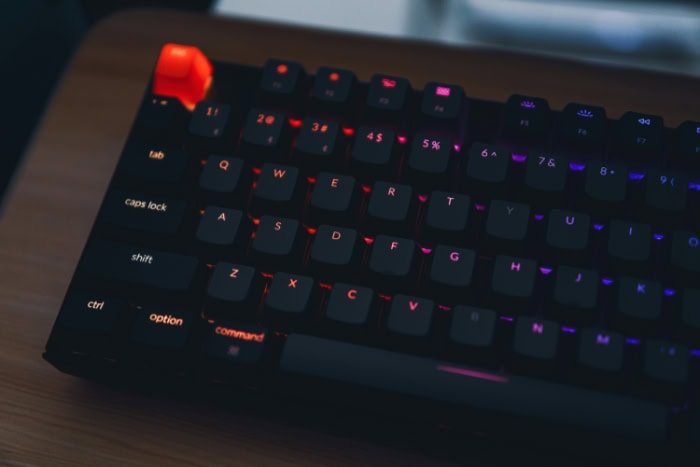
The satisfying click-clack of mechanical keyboards has become a hallmark of quality for tech enthusiasts, but does the hype live up to the reality? Renowned for their precision, durability, and tactile feel, these keyboards have made a name for themselves in gaming setups, offices, and creative workspaces.
However, the premium price and distinctive features often leave potential buyers wondering if they’re truly worth the investment.
What Makes Mechanical Keyboards Unique?
Mechanical keyboards have earned their reputation as a premium choice for enthusiasts and professionals alike due to their unparalleled typing experience, robust build quality, and superior customization options. Unlike standard membrane keyboards, which rely on rubber domes to register keystrokes, mechanical keyboards use individual mechanical switches for each key.
This foundational difference results in a distinct combination of feel, sound, and performance that appeals to a variety of users.
Switch Technology
At the heart of every mechanical keyboard lies its defining component: the mechanical switch. These switches come in three broad categories: linear, tactile, and clicky, each offering its own unique typing sensation.
Linear switches, known for their smooth keystrokes without tactile bumps or audible clicks, are preferred by those who value simplicity and speed. Tactile switches, on the other hand, feature a small bump that provides physical feedback when a key is actuated, making them ideal for typists who rely on precision.
For users who enjoy audible feedback, clicky switches add a gratifying “click” sound in addition to tactile feedback.
This switch variety is a key element that distinguishes mechanical keyboards from their membrane counterparts, which lack this level of differentiation. Membrane switches, with their mushy feel, often result in inconsistent actuation and less satisfying typing experiences.
Mechanical switches offer not only superior consistency in how they register each keystroke but also a level of customization that allows users to select a switch type tailored to their needs, whether for gaming, typing efficiency, or sheer enjoyment.
Build Quality
Another defining feature of mechanical keyboards is their superior construction. Mechanical keyboards are often crafted with high-quality materials such as metal backplates for structural integrity and durable keycaps made from PBT (polybutylene terephthalate) plastic, which resists wear and maintains texture over time.
In contrast, most membrane keyboards are made from cheaper ABS (acrylonitrile butadiene styrene) plastic, which tends to develop a shiny, worn-down look with prolonged use.
This focus on durability extends to the lifespan of the switches themselves. Mechanical switches are designed to withstand tens of millions of keystrokes, some rated for up to 100 million, compared to the much shorter lifespan of membrane switches.
Over time, this means mechanical keyboards not only perform better but also save users from frequent replacements, making them a lasting investment.
Typing Feedback
Perhaps the most celebrated aspect of mechanical keyboards is the tangible satisfaction they bring to typing. The tactile feedback provided by certain switches, combined with the satisfying sound of each press, creates an engaging experience that many users find addictive.
Each keystroke feels deliberate and precise, reducing the chances of accidental presses and improving overall accuracy.
This enhanced feedback is particularly valuable for prolonged typing sessions. Unlike membrane keyboards, which can often feel spongy and fatiguing over time, the consistent actuation force and ergonomic design of mechanical keyboards make typing more comfortable.
Whether you’re writing code, drafting documents, or battling foes in a video game, mechanical keyboards deliver a sense of responsiveness and control that elevates the task at hand.
Benefits of Mechanical Keyboards
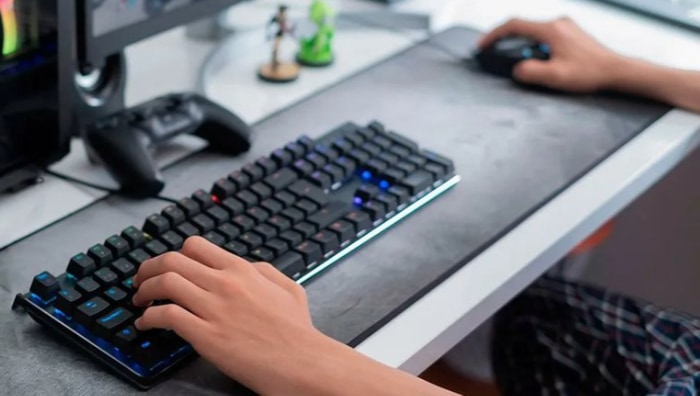
Mechanical keyboards are celebrated for delivering a next-level typing and gaming experience that goes beyond what traditional keyboards can offer. From improved performance to an extended lifespan and endless customization opportunities, these keyboards cater to a diverse range of users looking for reliable and satisfying tools.
Improved Typing Experience
One of the most noticeable benefits of mechanical keyboards is the superior typing experience they provide. The precise tactile feedback from mechanical switches ensures that each keystroke is crisp and deliberate.
This consistency not only enhances accuracy but also reduces the need for forceful pressing, making tasks like writing, coding, or gaming feel smoother and more enjoyable.
Typing on a mechanical keyboard is often faster and more intuitive compared to membrane keyboards. The resistance and actuation point in the switches give you a clear sense of when a keypress has registered, which minimizes errors and helps you type more confidently.
For professionals and students who spend hours typing, the reduced fatigue from the ergonomic design and consistent switch performance can make a significant difference in comfort and productivity.
Durability
Mechanical keyboards are built to last, making them a smart choice for long-term use. Their switches are designed to endure between 30 and 70 million keystrokes, and some premium options can exceed 100 million, far outpacing the lifespan of most membrane keyboards.
This durability is further supported by the high-quality materials often used, such as metal frames and wear-resistant keycaps.
While mechanical keyboards may come with a higher upfront cost, their longevity provides value over time. A well-made mechanical keyboard can last for years without a noticeable decline in performance, reducing the need for frequent replacements.
For users who rely on consistent performance, this reliability can save money and prevent the hassle of purchasing multiple keyboards over a short period.
Customization Options
Mechanical keyboards are also highly customizable, allowing users to tailor their setup to their preferences. Unlike standard keyboards, many mechanical models enable you to swap out switches to experiment with different types or improve functionality.
Whether you prefer the smoothness of linear switches, the tactile bump of tactile switches, or the audible click of clicky switches, there’s an option to suit your typing or gaming style.
Customization extends beyond functional enhancements. Many mechanical keyboards support keycap replacement, which not only lets users improve comfort and grip but also opens up a world of creative expression with colors, materials, and designs.
Additionally, programmable layouts and RGB lighting allow users to personalize their keyboard’s appearance and functionality to match their workspace or gaming rig. This blend of personalization and performance makes mechanical keyboards more than just a tool; they become an extension of the user’s style and needs.
Challenges and Drawbacks
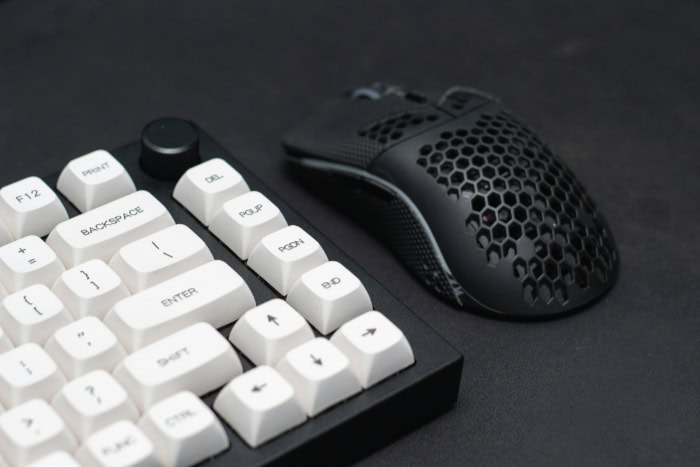
While mechanical keyboards are widely praised for their performance and customization, they are not without their downsides. Factors such as cost, noise levels, and portability can make them less practical for certain users.
Before deciding to invest, it’s important to weigh the potential challenges to determine if a mechanical keyboard aligns with your personal needs and preferences.
Higher Cost
One of the most commonly voiced concerns with mechanical keyboards is their price. Compared to membrane keyboards, which are usually budget-friendly, mechanical keyboards often come with a significantly higher upfront cost.
Entry-level models can start at around $50, while premium options with advanced features or custom parts can range well into the hundreds. In contrast, a basic membrane keyboard might cost as little as $10–$20.
The question of cost ultimately comes down to priorities. For casual users who use their keyboard sparingly or view it as a utilitarian tool, the additional expense may seem hard to justify.
However, for gamers, professionals, and hobbyists who value performance, durability, and aesthetics, the higher price tag may be seen as a worthwhile investment. Even so, it’s easy to see why the elevated cost could deter those who are unfamiliar with the benefits mechanical keyboards bring to the table.
Noise Levels
The sound produced by mechanical keyboards is another factor that can be a drawback, depending on the environment in which they’re used. Clicky switches, such as Cherry MX Blues, are known for their distinctive, loud clicking noise, which may not be ideal in shared workspaces or quiet environments like libraries.
Even tactile switches, which are quieter, or linear switches, which produce the least noise, can still be noticeably louder than membrane keyboards.
For users who share a space with coworkers, roommates, or family members, the noise factor can become a genuine concern. Thankfully, there are ways to address this issue.
Opting for silent switch variants or adding sound-dampening modifications, such as O-rings or noise-reducing foam, can help minimize the keyboard’s volume. Still, the extra effort and cost of these solutions may not appeal to everyone.
Portability and Size
Mechanical keyboards also tend to be bulkier and heavier than their membrane counterparts, making them less convenient for users who need a compact or travel-friendly option. Many mechanical keyboards are constructed with durable materials like metal backplates and thick, high-quality plastics, which contribute to their weight and overall size.
While this enhances stability and durability, it makes carrying them around less practical.
Additionally, full-size mechanical keyboards often include a numpad and additional keys, further increasing their footprint. While smaller form factors like tenkeyless (TKL) or 60% keyboards exist, even these can feel less portable compared to lightweight membrane alternatives.
For those who frequently commute, travel, or work in locations where desk space is limited, the size and weight of a mechanical keyboard can present a challenge.
These factors make it clear that while mechanical keyboards offer significant benefits, they may not be the ideal choice for everyone. Balancing personal priorities with these considerations is key to determining their suitability.
Use Cases: Who Can Benefit Most?
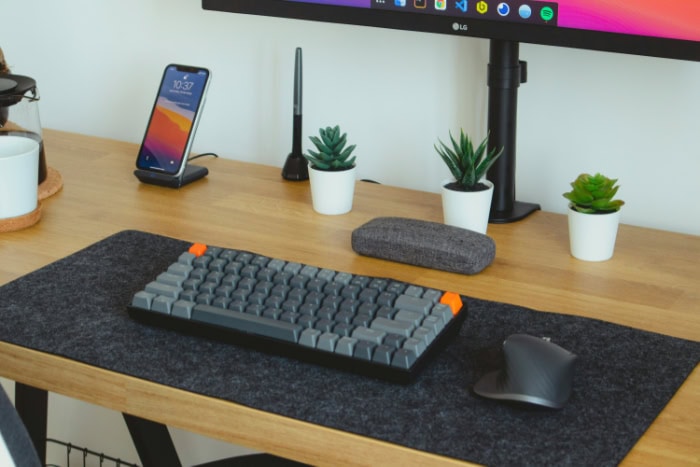
Mechanical keyboards are not a one-size-fits-all product, but their versatility allows them to cater to a wide range of users with varying needs. From gamers seeking a competitive edge to professionals relying on efficient tools for their work, mechanical keyboards are designed to enhance performance and comfort.
Even casual users can enjoy their appeal, making them more than just a niche product.
Gamers
For gamers, mechanical keyboards offer several advantages that can elevate both the experience and performance. Features like anti-ghosting and N-key rollover ensure that every keypress is registered accurately, even during rapid or complex inputs.
This level of precision is crucial in high-stakes situations where missed commands can mean the difference between victory and defeat.
Additionally, many mechanical keyboards include programmable macros, which allow gamers to set up custom key combinations or shortcuts for specific in-game actions. These features are particularly valuable in genres like MMOs, MOBAs, and strategy games, where quick access to commands can provide a competitive advantage.
Beyond functionality, mechanical keyboards are known for their tactile feedback and responsiveness, which make gameplay more immersive and satisfying. Whether it’s the smoothness of linear switches for fast-paced action games or the tactile feedback of other switch types for strategic play, gamers often find that mechanical keyboards enhance their overall experience.
Professionals
Professionals who rely on typing as a core part of their work, such as programmers, writers, and office workers, are another group that can benefit greatly from mechanical keyboards. The consistent actuation force and tactile feedback offered by these keyboards reduce errors and improve speed, making them ideal for long hours of writing code, drafting documents, or handling large volumes of emails.
The durability of mechanical keyboards also appeals to professionals who need reliable equipment. Unlike membrane keyboards, which can wear out quickly, mechanical keyboards are built to withstand heavy use.
This durability ensures that they can handle demanding workloads without a decline in performance, making them a dependable tool for daily tasks.
Additionally, professionals often appreciate the ergonomic design of mechanical keyboards. Many models feature layouts or accessories, such as wrist rests, that reduce strain during extended typing sessions.
For users who spend hours at a desk each day, these ergonomic benefits can significantly impact comfort and productivity.
Casual Users
Mechanical keyboards aren’t just for those with specialized needs; they also appeal to casual users who prioritize comfort and enjoyment in their typing experience. The tactile and auditory feedback of mechanical switches can make everyday tasks like web browsing, chatting, or drafting personal notes more enjoyable.
For some, the act of typing on a mechanical keyboard becomes a hobby in itself, with enthusiasts collecting keycaps, experimenting with switches, and customizing their setups for fun.
While casual users may not require advanced features like macro programming or N-key rollover, the overall quality and feel of mechanical keyboards are often enough to win them over. Smaller, minimalist designs like 60% keyboards are particularly appealing to hobbyists and users seeking a sleek, uncluttered workspace.
Cost vs. Value: Are They Worth It?
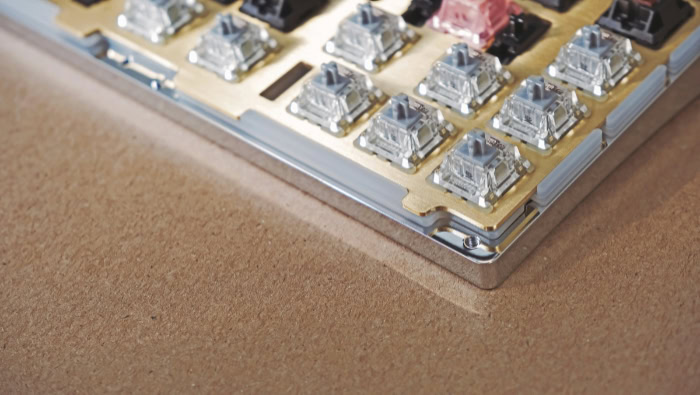
Mechanical keyboards are often seen as a premium alternative to standard membrane keyboards, and this perception naturally raises questions about their value. While their upfront cost is typically higher, the benefits they offer in terms of performance, durability, and versatility can justify the expense for many users.
However, the answer isn’t universal; it largely depends on individual priorities and how much one values the features and experience a mechanical keyboard provides.
Long-Term Investment
One of the strongest arguments in favor of mechanical keyboards is their durability, which makes them a reliable long-term investment. Mechanical switches are designed to last tens of millions of keystrokes, significantly outlasting the lifespan of most membrane keyboards.
This durability means that even with daily use, a well-built mechanical keyboard can remain functional and consistent for years, reducing the need for frequent replacements.
While the initial price may seem daunting, ranging from $50 for entry-level models to over $200 for premium options, this upfront cost can be offset by the long-term savings. Membrane keyboards, though cheaper initially, often wear out quickly and require repeated purchases, especially for users who type or game extensively.
Over time, investing in a mechanical keyboard can actually prove to be more cost-effective, as the need for replacements diminishes significantly.
Value for Specific Needs
Whether a mechanical keyboard is “worth it” often depends on what the user values most in their typing or gaming experience. Gamers, for example, may find the advanced features of mechanical keyboards, such as N-key rollover, anti-ghosting, and programmable macros, to be essential for competitive play.
The enhanced response times and tactile feedback of mechanical switches can provide a noticeable edge in performance, particularly in fast-paced games.
For professionals like writers or programmers, the precise feedback and comfortable typing experience mechanical keyboards offer can dramatically improve productivity and reduce fatigue during long hours at the desk. The improved accuracy and consistency of mechanical switches are especially valuable for tasks that require meticulous attention to detail, making them well-suited for workplace needs.
On the other hand, casual users who don’t require advanced features but simply want a reliable and enjoyable typing experience can also find value in mechanical keyboards. However, for those who type infrequently or don’t feel strongly about tactile feedback, a mechanical keyboard might not deliver enough added benefit to justify its cost.
Alternatives
For users who are intrigued by mechanical keyboards but hesitant about the cost, there are budget-friendly and hybrid options that offer a middle ground. Some entry-level mechanical keyboards deliver core mechanical functionality at more affordable prices, sacrificing advanced features like programmable keys or RGB lighting.
These models are a great way for newcomers to experience the benefits without a significant investment.
Hybrid keyboards, which combine elements of mechanical and membrane designs, are another alternative. These “mecha-membrane” keyboards aim to replicate the feel of mechanical switches while keeping costs relatively low.
While they don’t offer the same level of authenticity as true mechanical keyboards, they provide an improved typing experience compared to standard membrane options at a fraction of the price.
Conclusion
Mechanical keyboards stand out for their superior typing experience, durability, and customization options, offering something for gamers, professionals, and hobbyists alike. Their advanced features, like responsive switches and personalization potential, elevate both work and play, making them a compelling choice for those who value performance and comfort.
However, they are not without their challenges. Factors such as higher upfront costs, noise levels, and reduced portability may make them less practical in certain situations.
That said, the durability and long-term cost-effectiveness of a mechanical keyboard can often outweigh the initial investment, especially for those who use their keyboard extensively or require specialized performance.
For those not ready to fully commit, budget-friendly or hybrid options can provide a taste of the mechanical experience while balancing affordability. Ultimately, deciding whether a mechanical keyboard is worth it comes down to individual needs, preferences, and how much value you place on a high-quality typing or gaming experience.


